-
About
About our School
At Mount Michael the core of the academic program enables students to become inquiring learners, appreciative of their heritage, responsive and committed to the challenges of the future.
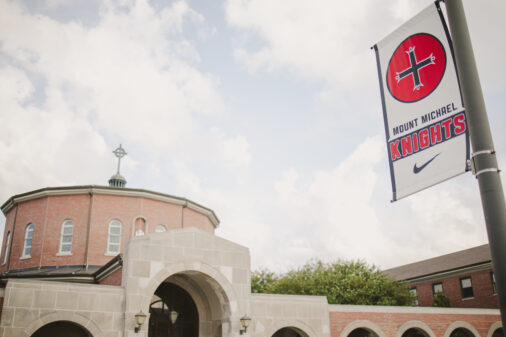
-
Admissions
Admissions
Mount Michael Benedictine School admits students of any race, color, national and ethnic origins to all the rights, privileges, programs and activities generally accorded or made available to the students.

-
Academics
Academics
Ultimately, it is our goal to enable every student to reach his educational and career potential.

-
Counseling
Counseling
The Mount Michael Benedictine School Counseling program is a comprehensive counseling program dedicated to nurturing our students, families, and community.
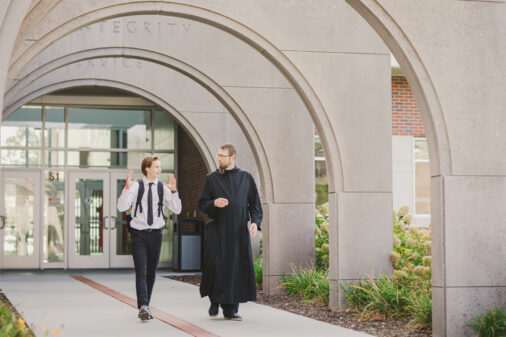
-
Spirituality
Spirituality
Benedictine values encompass a broad range of concepts that are central to life within a Christian community. It is quite possible to literally perceive dozens of values that can be deemed as Benedictine in nature. This a testimony to the breadth of “The Rule” and communal life established by Saint Benedict.
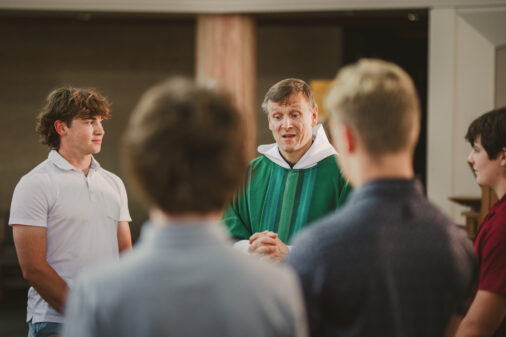
-
Activities
Activities
There are many opportunities for students to get involved at Mount Michael. Some are competitive, some are participatory. In either case it is all part of getting a well rounded educational experience.
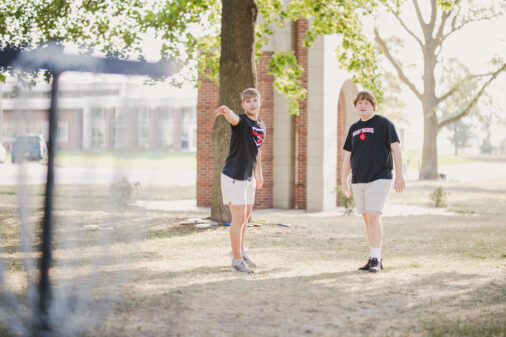
-
Athletics
Athletics
There are many opportunities for students at Mount Michael to participate in our top of the line athletic programs. Go Knights!
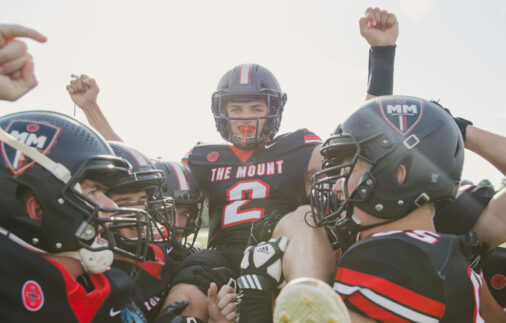
-
Advancement
Advancement
Under this tab you will find links to Mount Michael giving opportunities as well as information about fundraising events.
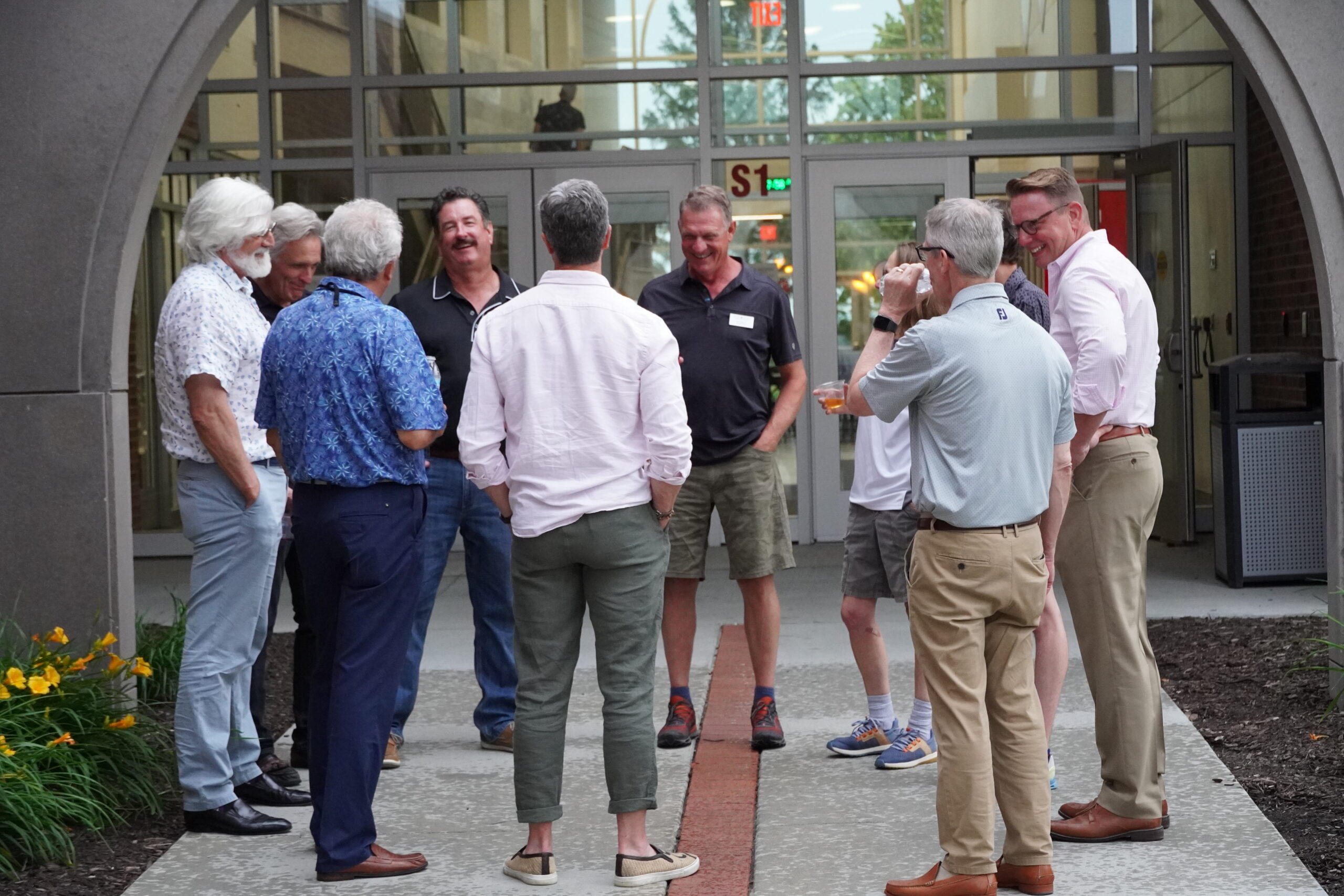
Social Studies
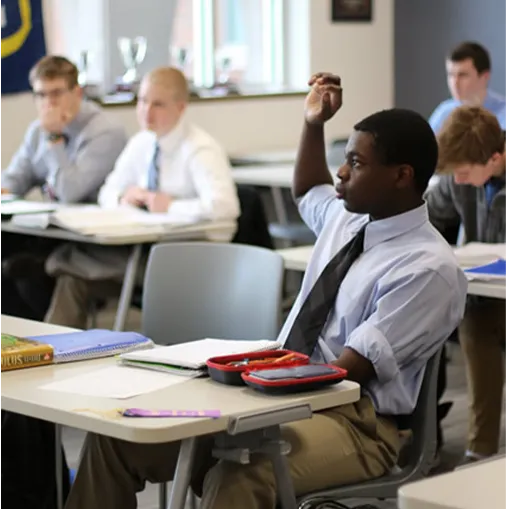
Social Studies
Expand the bars below for a full description of each Social Studies course and the credit hours.
World History
World History is a 10-credit required year-long course for freshmen. The course is designed to introduce students to major historical events. Students will analyze important social, political, and economic issues regarding various time periods, while developing their reading, writing, and critical thinking skills. This course will incorporate the study of world geography, government, culture, and social movements in an effort to deepen the student’s understanding of our world’s history. Completion of this course will provide students with the skills needed in future history courses.
Civics
Civics is a 5-credit required semester course for sophomores. Civics is a course to prepare students to become responsible, active, and informed citizens. This course provides students with a basic understanding of the rights and responsibilities of U.S. citizens. Emphasis is placed on the foundations of U.S. government, the three branches of U.S. government, structure of state and local government, and the rights and responsibilities of citizens. The course will incorporate discussions, research projects, and written essays to help students develop a working knowledge of government and foster participation as active citizens.
Business Economics
Business Economics is a 5-credit required semester course for sophomores. Business Economics introduces economic concepts as well as the organization and functioning of the American economic system. The class also acquaints students with business organization, management, expansion, and strategy. Business Economics also develops personal economic and life skills in the areas of banking, savings, personal finances, and investments.
United States History
United States History is a 10-credit required year-long course for juniors. The first semester is a survey of North American history from the Indigenous and pre-contact era to the end of the Civil War. The second semester is a general survey of American history since the Civil War, emphasizing social and political change and the emergence of the United States as a global power. The course also provides seven themes that students explore throughout the course in order to make connections among historical developments in different times and places: American and national identity; migration and settlement; politics and power; work, exchange, and technology; America in the world; geography and the environment; and culture and society.
Advanced Placement United States History
Is designed to be the equivalent of a two-semester (10 credits) introductory college or university U.S. history course. In AP U.S. History students investigate significant events, individuals, developments, and processes in nine historical periods from approximately 1491 to the present. Students develop and use the same skills, practices, and methods employed by historians: analyzing primary and secondary sources; developing historical arguments; making historical comparisons; and utilizing reasoning about contextualization, causation, and continuity and change over time. The course also provides seven themes that students explore throughout the course in order to make connections among historical developments in different times and places: American and national identity; migration and settlement; politics and power; work, exchange, and technology; America in the world; geography and the environment; and culture and society. Juniors are required apply for this class.
SOPHOMORE/JUNIOR/SENIOR ELECTIVE
Honors Academic Decathlon
Academic Decathlon is an accelerated and intensive year-long course of study in science, social studies, math, language and literature, art, music, economics, speech (prepared and impromptu), interview, and essay. Most of these subjects will relate to an overall topic that changes every year. The goal of the class is to be prepared for competition against other schools at the regional, state, and national level. All students who take the class will be required to attend two scrimmages in the fall, and based on first semester performance a team of twelve will be selected for official competitions in the spring. (2 semesters, 5 credit hours per semester)
For more information about Academic Decathlon, including the competition, subject areas, student divisions, and so on, please visit:
http://www.usad.org
JUNIOR/SENIOR ELECTIVES
Classical Studies
Classical studies is a 5-credit semester course that counts towards the senior social studies requirement. Classical studies offer an introduction to ancient Greece and Rome through history, literature, philosophy, religion, art, and archeology. Students who take this course will explore topics of enduring importance with the goal of looking to the past to understand the present.
| Topics include, but are not limited to: • Greek and Roman religion • Philosophy • Athenian Democracy |
• Spartan society • Peace and War • Classical literature, art, and architecture • The Macedonian Empire |
• The Roman Republic • The Roman Empire • The Byzantine Empire |
AP Psychology
Psychology is a 5-credit semester course that counts toward the senior social studies requirement. Psychology is an introduction to the basic concepts of human behavior and development. This course will investigate the basic principles and perspectives of psychology, the brain and its functions, sensation and perception, personality, learning and state of consciousness, social psychology, and abnormal psychology. This is a junior/senior elective course and fulfills the senior social studies requirement if taken during senior year.
Holocaust Studies
Holocaust Studies is a 5-credit semester course that counts toward the senior social studies requirement. This course looks at the history of genocide; examines the roots of the Holocaust in European antisemitism, racism, and colonialism; analyzes Hitler’s rise to power, Nazi ideology, and Nazi genocide against the Jews and other targeted peoples; considers Jewish responses to persecution and genocide; and examines genocide in modern history.
AP United States Government & Politics
AP U.S. Government and Politics is a 10-credit year-long course that counts toward the senior social studies requirement. This course provides students with the political knowledge and reasoning processes to participate meaningfully and thoughtfully in discussions and debates that are currently shaping American politics and society. AP U.S. Government and Politics studies the interconnectedness of the different parts of the American political system and the behaviors and attitudes that shape this system and are the byproduct of this system. Juniors and seniors are required to apply for this class
AP Psychology
AP Psychology is a 10-credit year long course that counts toward the senior social studies requirement. Psychology is the systematic, scientific study of behavior and mental processes. Psychology covers everything that people think, feel and do. We will study the history of psychology from ancient times to the present, also the different schools of thought that make up the discipline. We will examine the human brain, its biology, chemistry and its myriad functions. We will look at individual behavior and social psychology as well. Also, we will study and utilize the scientific methodology that make psychology a “social science.” (2 semesters, 5 credit hours per semester)
AP Human Geography
AP Human Geography is a 10-credit year long course that counts toward the senior social studies requirement. This course introduces students to the systematic study of patterns and processes that have shaped human understanding, use, and alteration of Earth’s surface. Students employ spatial concepts and landscape analysis to examine socioeconomic organization and its environmental consequences. They also learn about the methods and tools geographers use in their research and applications. The curriculum reflects the goals of the National Geography Standards.
Philosophy
This course is an elective that fulfills a social studies requirement for students in 11th or 12th grade. In this class, students will be introduced to foundational topics in philosophy, including historical background and major approaches to philosophical thought and discussion. Students will learn concepts associated with the study of logic, ethics, social contract theory, and metaphysics. Textbook readings and primary sources will be assigned as students learn to think and discuss as philosophers, along with reflective writing and tests over course content.

